suicide

Shermer and Hauser discuss: • Adverse Childhood Experiences (ACEs) • Hauser’s personal adversities • types of adversity • LeBron James story from childhood trauma to NBA triumph • The Dark Triad: psychopathy, machiavellianism, narcissism • Attachment Theory • Disorganized Attachment • Borderline Personality Disorder • sexual abuse and eating disorders • substance abuse, suicide, obesity, depression, liver disease, school dropout, lower life expectancy • timing, duration, severity, and predictability of ACEs.
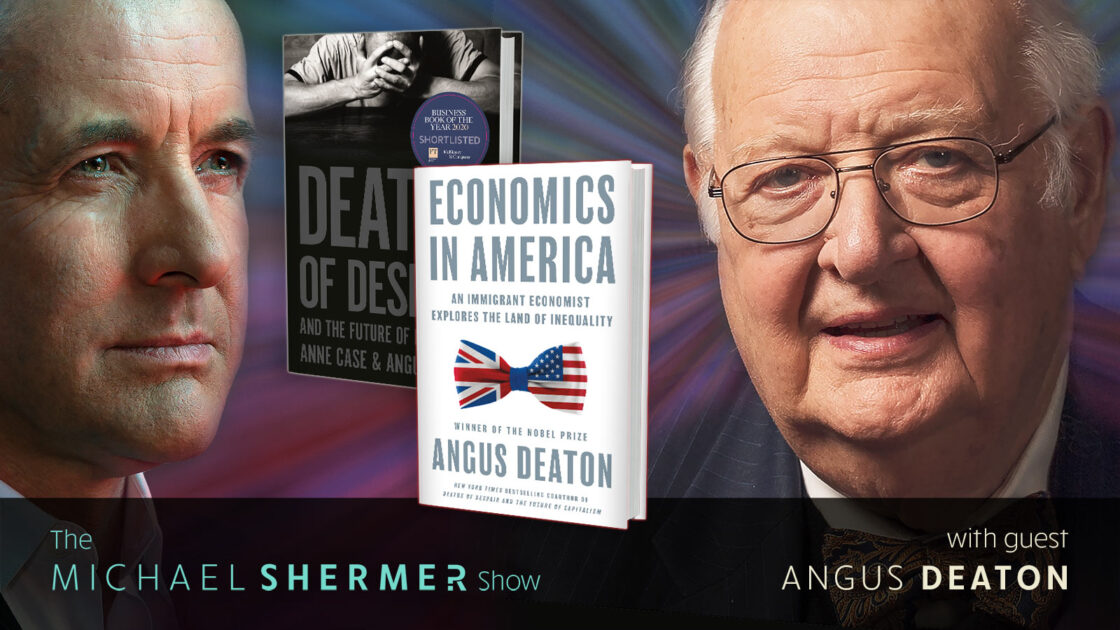
Shermer and Deaton discuss: the science of science is economics • winning a Nobel Prize • what economists do, and how they determine causality • Ludwig von Mises, Friedrich Hayek, Milton Friedman, Ayn Rand • why a college education matters • meritocracy and “Just World” theory • minimum wage • healthcare • poverty • inequality • opioid crisis, alcoholism, suicide • inflation and interest rates • modern monetary theory • think tanks.
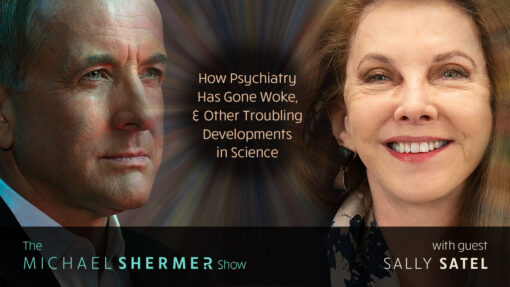
Michael Shermer and professor of psychiatry, Sally Satel, discuss: how political correctness has corrupted medicine • how wokeness and social justice activism has corrupted psychiatry • What is social justice and who is really practicing it? • medical models of mental illness • why mental illness is so hard to treat • medical models of addiction: where they succeed, where they fail • how addictions are treated • Can one be addicted to porn? • Can one be addicted to…
In episode 243 of The Michael Shermer Show, Michael speaks with psychiatrist Dr. Sally Satel about addiction, the opioid crisis, deaths of despair, and how psychiatry has gone woke.
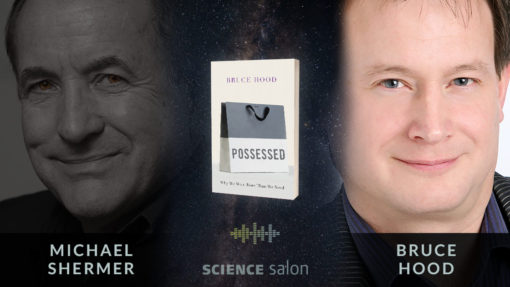
Psychologist Bruce Hood explains why our uniquely human preoccupation with ownership governs our behavior, even when it is often irrational, and destructive. Possessed is the first book to explore how ownership has us enthralled in relentless pursuit of a false happiness, with damaging consequences for society and the planet — and how we can stop buying into it.
In Science Salon # 81, Michael Shermer speaks with award-winning University of Bristol psychologist Bruce Hood about his brand new book, Possessed: Why We Want More Than We Need, which draws on research to explain why our uniquely human preoccupation with ownership governs our behavior from the cradle to the grave, even when it is often irrational, and destructive.
In Science Salon # 79 Michael Shermer speaks with former dean of Yale Law School Anthony Kronman about his new book The Assault on American Excellence; PLUS psychologist John Glynn explores one of the most perplexing aspects of human behavior: why does anyone die by suicide?
In Science Salon # 74 Michael Shermer speaks with practicing psychiatrist and trauma scientist at the National Center for PTSD Shaili Jain, M.D about her new book The Unspeakable Mind, which shines a long-overdue light on the Post-Traumatic Stress Disorder (PTSD) epidemic affecting today’s fractured world; PLUS Chris Edwards reviews Skin in the Game: Hidden Asymmetries in Daily Life by Nassim Nicholas Taleb.
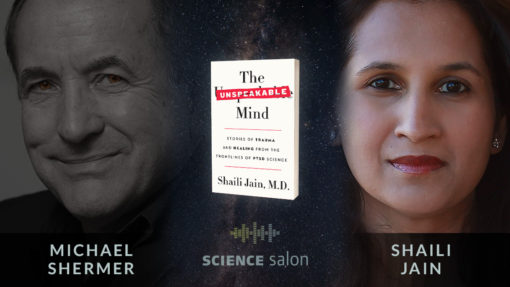
Shermer speaks with practicing psychiatrist and trauma scientist at the National Center for PTSD Shaili Jain, M.D about her new book in which shines a long-overdue light on the Post-Traumatic Stress Disorder (PTSD) epidemic affecting today’s fractured world.
Science Salon # 40: Dr. Kwame Anthony Appiah — Who Am I? Who Are You? The Lies That Bind: Rethinking Identity; Scientific American: A Mysterious Change of Mind: Why Do People Die by Suicide?; MonsterTalk # 171: Long and Drawn Out: Bigfoot Pictographs
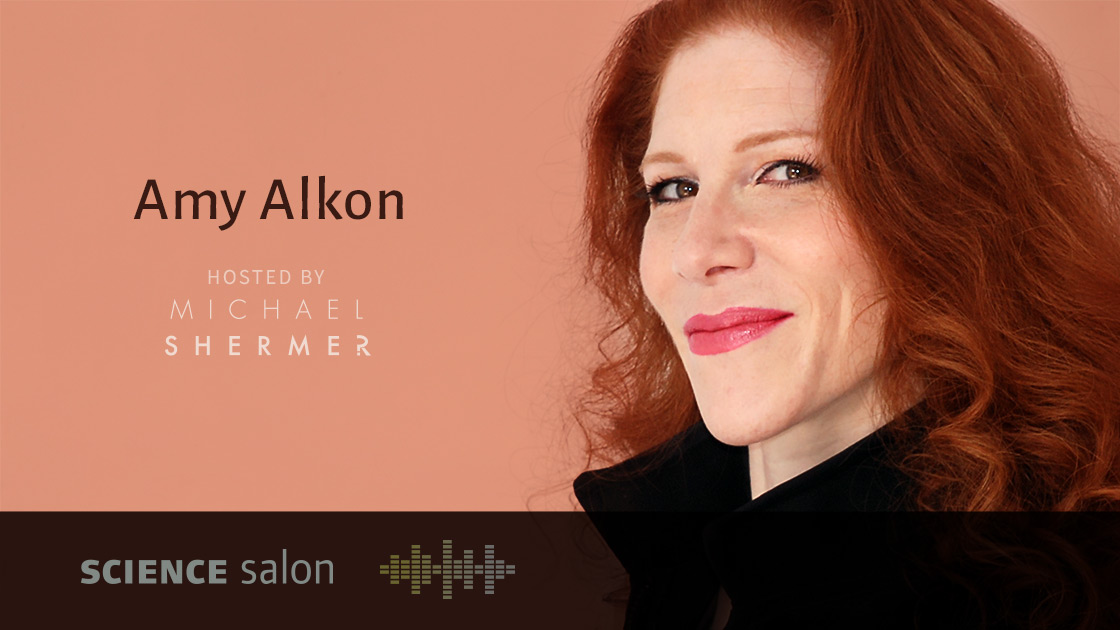
Science writer and weekly advice columnist Amy Alkon debunks widely-accepted but scientifically unsupported notions about self-esteem, shame, willpower, and more and demonstrates that thinking your way into changing (as so many therapists and self-help books advise) is the most inefficient way to go about it. Shermer and Alkon also get into the #metoo movement, evolutionary psychology, politics, depression, suicide, Jordan Peterson, and other fascinating topics.
In Science Salon # 31, Michael Shermer talks with the science writer and weekly advice columnist Amy Alkon about her new book, Unf*ckology: A Field Guide to Living with Guts and Confidence.
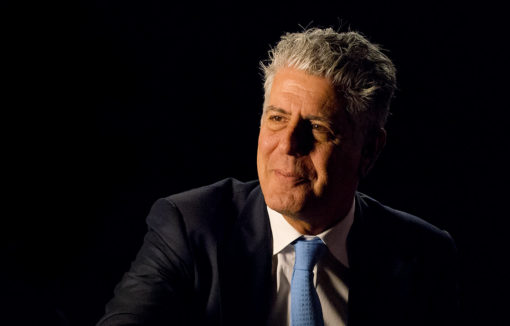
Jesse Bering responds to Bill Donohue’s claim that if Anthony Bourdain had been a religious man, he wouldn’t have taken his own life.

Jesse Bering responds to Bill Donohue’s claim that if Anthony Bourdain had been a religious man, he wouldn’t have taken his own life.















